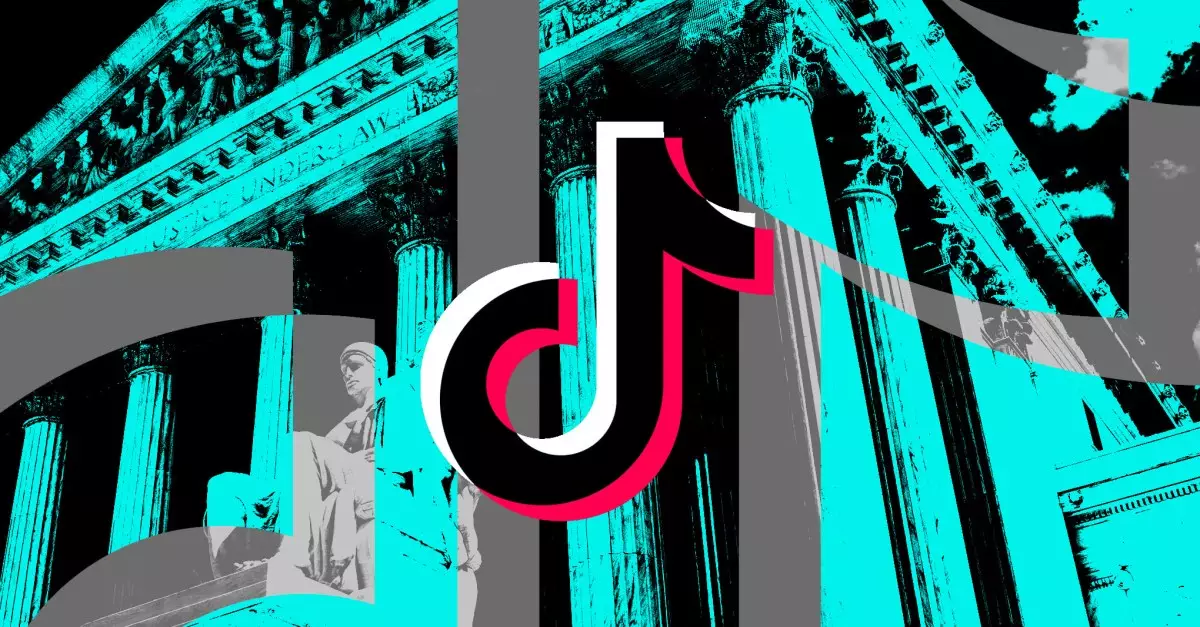In a world increasingly characterized by a digital presence, TikTok has emerged as a prominent player in the social media landscape. With its engaging short-form videos, it has captivated millions globally, particularly in the United States. However, its journey has been far from smooth, especially when it comes to political maneuvering that has endangered its existence on American soil. As the narrative surrounding TikTok continues to evolve, it is crucial to analyze the impact of political ambitions and economic agendas on its fate.
The Threat of a Ban: Politics as Usual
The specter of a ban on TikTok isn’t just a digital quagmire; it’s a reflection of underlying political tensions. Former President Donald Trump’s administration played a pivotal role in this saga by raising concerns over national security while simultaneously launching a trade war with China. The ban proposed a radical solution to an alleged problem, one predicated on geopolitical rivalry rather than genuine security concerns. The timing of these threats was pivotal. Just as negotiations to ensure TikTok’s survival in the U.S. seemed to be gaining traction, this ill-timed trade war cast a long shadow over potential deals that involved corporate giants like Oracle and influential stakeholders from ByteDance, TikTok’s Chinese parent company.
Corporate Players Enter the Fray
With the looming threat of a ban, various corporations, from tech stalwarts to entertainment platforms, expressed interest in acquiring TikTok’s U.S. operations. The narrative became one of corporate agility; however, the reality was far more complex. While the market clamored for a potential acquisition, meaningful negotiations were complicated by the geopolitical landscape. Notably, the Oracle-led consortium emerged as the favored contender, presenting a plan to partially sever TikTok from its Chinese roots while maintaining the app’s core functionality. Unfortunately, this plan was heavily reliant on a pipeline of goodwill from both the U.S. and Chinese governments—a delicate balancing act that quickly faltered.
The Economic Tug-of-War
What makes this saga particularly compelling is the tug-of-war between economic interests and political posturing. Trump’s tariff policies and the retaliatory measures from China turned what could have been a straightforward business transaction into an exercise in futility. The proposal to license TikTok’s algorithm—a significant technical asset—through Oracle was sound in theory but dashed against the hard reality of trade relations. ByteDance’s insistence that any agreement would require approval from the Chinese government effectively made negotiations dead on arrival. This situation not only jeopardized TikTok’s standing but also represented a broader reflection of how intertwined commerce and politics have become in an era of globalization.
The Emotional Toll of Uncertainty
Beyond the corporate and political ramifications, it is essential to acknowledge the emotional weight this saga carries for the millions of content creators and users who rely on TikTok for expression and connection. The continuous threat of a ban has fostered an atmosphere of instability, leaving many uncertain about their livelihoods. For creators who depend on this platform for income and personal expression, the stakes are profoundly high. TikTok is not just an app for entertainment; it has morphed into a digital lifeline for many, and the constant political maneuvering deters from the social fabric built over years.
Technological Evolution Amidst Chaos
As the political drama continues to unfold, it’s worth contemplating the broader implications for technology and innovation. The saga surrounding TikTok is a cautionary tale about how political agendas can influence the development and operation of technological platforms. The challenge lies in creating a framework that allows for innovation without succumbing to political puppeteering. In a landscape where the pace of tech evolution is blistering, relying on outdated notions of national security can stifle progress and curtail ingenuity.
Looking Ahead: The Future of TikTok
While the immediate future of TikTok hangs in a precarious balance, it has become increasingly clear that the battle over the app is emblematic of larger issues within tech governance and regulation. Gamification of politics and economic rivalry may continue to hinder technological progress, but one must hope for a resolution that promotes collaboration rather than division. As stakeholders on both sides navigate this convoluted arrangement, the need for transparent, fair negotiations is urgent. The challenges facing TikTok may one day be seen as a transformative moment, pushing society to confront the complicated interplay of technology and politics in a digital-first world.

